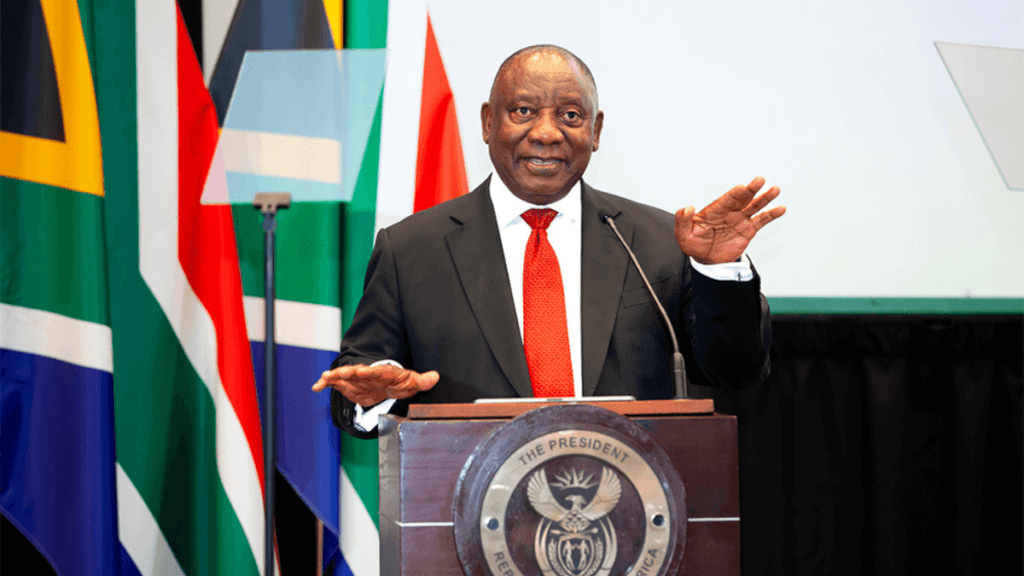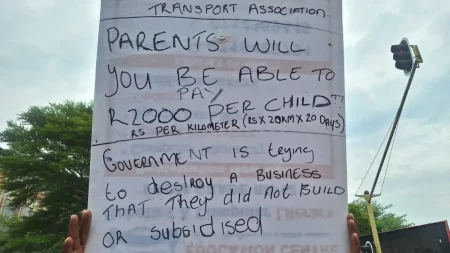On 23 January 2025, President Cyril Ramaphosa signed the Expropriation Bill into law, replacing the outdated Expropriation Act of 1975. The new law aligns South Africa’s expropriation framework with the Constitution, particularly Section 25, which outlines how land and property may be expropriated in the public interest.
Here’s what this means for ordinary South Africans.
What is Expropriation?
Expropriation happens when the government takes ownership of private property. This isn’t done randomly or unfairly—there must be a public purpose or public interest involved, like building schools, roads, or housing. The owner of the property is also entitled to just and equitable compensation, as stated in the Constitution.
Why the New Law?
The old Expropriation Act of 1975 was written during apartheid and didn’t reflect the democratic values of the Constitution. The new law ensures that expropriation processes are:
- Fair and transparent
- Aligned with the Constitution
- Focused on inclusive development, such as giving more people access to land and natural resources.
Key Features of the New Expropriation Bill
- No Arbitrary Expropriation
The government cannot take land or property without a valid reason. The law ensures that expropriation happens only for public purposes (like infrastructure) or in the public interest (like addressing inequalities in land ownership). - Negotiation First
Before expropriation, authorities must try to negotiate with the owner. Expropriation is only a last resort when an agreement cannot be reached. - Compensation
Property owners will be compensated fairly. The amount will depend on factors like the property’s current use, market value, and the purpose of expropriation. - Mediation for Disputes
If there’s a disagreement about the expropriation or compensation, the case can go to mediation or be resolved in court. - Temporary Expropriation in Emergencies
In urgent cases (like natural disasters), the government may temporarily take control of property. Even then, it must follow the law and provide compensation.
Why is This Important?
South Africa’s history of land dispossession left deep inequalities. The Expropriation Bill is designed to promote justice and equity, helping more people gain access to land and resources while supporting economic growth and development.
However, it also protects property owners by ensuring the process is fair and not misused.
What Does This Mean for You?
If your property is identified for expropriation:
- The government must negotiate with you first.
- You have the right to fair compensation.
- If you disagree with the process, you can use mediation or the courts to resolve the issue.
For South Africans without land or adequate resources, this law offers an opportunity for a more inclusive society, where land and resources are shared more fairly.
FAQs About the New Expropriation Bill
1. What is the purpose of the Expropriation Bill?
The Expropriation Bill aims to align South Africa’s land and property expropriation process with the Constitution. It promotes fairness and inclusivity, ensuring that land can be expropriated for public purposes or in the public interest while compensating property owners justly.
2. Can the government take my property without compensation?
No. The law ensures just and equitable compensation for expropriated property, except in rare cases where property has little to no market value or is not being used for productive purposes.
3. What does “public interest” mean in this context?
“Public interest” includes addressing historical land injustices, promoting access to land and resources, and advancing equitable economic opportunities for South Africans.
4. What is the process for expropriation under this law?
- The expropriating authority identifies the property needed.
- Negotiations with the owner occur first to reach a fair agreement.
- If negotiations fail, expropriation may proceed following legal steps, including compensation.
- Disputes can be resolved through mediation or the courts.
5. Will this law lead to widespread land seizures?
No. The Expropriation Bill is designed to be transparent and fair, with strict guidelines to prevent arbitrary property seizures. Each case will require justification based on public purpose or public interest.
6. How is compensation calculated?
Compensation considers factors like the property’s market value, its current use, and the purpose of expropriation. The goal is to ensure fairness to both the owner and the public.
7. What happens if I disagree with the expropriation?
You can challenge the process through mediation or take the case to court. The law provides clear mechanisms to address disputes.
8. Does the Bill allow for temporary expropriation?
Yes, but only in urgent situations, such as responding to natural disasters. Compensation is still provided for temporary use of property.
9. Will this law address land redistribution?
Yes. One of the law’s objectives is to facilitate fair and equitable land redistribution, correcting historical injustices while maintaining constitutional principles.
10. How does this benefit ordinary South Africans?
The law seeks to create a more inclusive society, ensuring greater access to land and resources, fostering economic growth, and addressing inequality. At the same time, it protects the rights of property owners.
Final Thoughts
The Expropriation Bill is about balancing the needs of the public with the rights of property owners. It aims to correct historical injustices while respecting the principles of fairness and equity. For ordinary South Africans, it represents a step toward a more just and inclusive future.
Source: President Cyril Ramaphosa assents to Expropriation Bill










